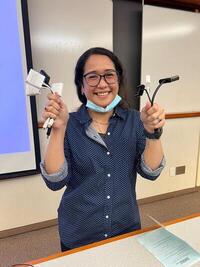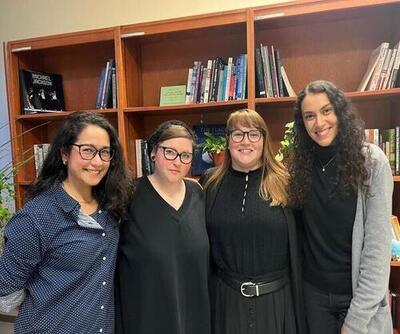
Student organizers Baraa Abuzayed, Samia Khan, Brenna McDougall, and Emily Veysey outdid themselves in hosting a superb symposium in Cultural Studies this week. First year MA students and almost-finished PhD students alike offered succinct and exciting accounts of their unfolding research to an appreciative audience.
The international scope was wide, from the first presentation about the role of arts in the largest refugee camp in the world, in Bangladesh (Naimul Karim), to the last presentation about the effect of the Contagious Diseases Act on a widowed mother of three in London in 1875 (Jessica Sealey).
There were fascinating discussions about language: about how translanguaging in Nigerian hip hop can be construed as a decolonial act (Adesoji Babalola), and about how the Urdu language is being forced into exile from India (Samia Khan).
Francisco Zepeda spoke of the continual reemergence of radical social imaginaries in Mexico and the political imaginaries and forces that seek to rein them in. Devon Ostrom reflected on the nature and effects of public art via various projects he has been involved with in Toronto. And Emily Vesey explored the possibilities of film as a critical site for representations of assistive reproductive technologies. Working from philosophical frameworks, Brenna McDougall considered the challenge of understanding community as a concept and practice open to non-humans.

Research-creation presentations displayed both methodological underpinnings and artistic expressions. Toleen Touq spoke of resisting commodification of art by “taking time” for “unproductive” collective imaginings, and her talk was echoed by Jill Price’s presentation on her project of unmaking and unravelling art to reveal and return the resources it requires. We heard and saw the richness of Alanna Stuart’s voyage into Jamaican musical cultures, and Baraa Abuzayed took us through her personal and political process in the recreation of a Palestinian thobe (traditional dress).
In addition to all these provocations, Evalyn Parry sang a song brilliantly enumerating, defining, and poking fun at key terms from Cultural Studies courses, to the delight of all assembled.
Thanks to the presenters for sharing this work: you are all brave and brilliant!
-- Laura Murray